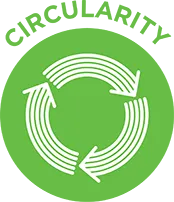Our responsible approach
Our responsible approach for people and the planet
Driven by our Thai Union Group, our CSR (Corporate Social Responsibility) approach ‘SeaChange® 2030’ is part of
a virtuous circle of effective and responsible change to reshape the seafood industry to ensure a more sustainable future for all.
The Thai Union Group’s CSR programme has been recognised by
the Dow Jones Sustainability Index (DJSI) for the 11th consecutive year in 2024.
In 2024, for the 8th consecutive year, MerAlliance was awarded the highest level of performance
for its CSR approach under the ISO 26000 standard, namely the ‘Excellence’ level.
Restore & protect communities

Ensuring fair wages and benefits as well as safe and healthy working conditions

Advancing a healthier world and delivering critical resources to those most in need
Restore & protect ecosystems

Deploying actions that reduce GHG emissions

Safeguarding life and ecosystems

Designing and operating systems that minimize waste
11 ambitious and concrete commitments in line with the United Nations Sustainable Development Goals (SDGs)
Path to net zero emissions
MerAlliance contributes to Thai Union’s science-based near- and long-term emission reduction targets, endorsed by the Science Based Target Initiative (SBTi), including:
- -42% across Scopes 1, 2, and 3 by 2030 from a 2021 baseline
- achieving net zero by 2050

Responsible wild caught seafood
To guarantee responsible sourcing, in particularly through unfailing traceability and the choice of suppliers who comply with our specifications on fishing methods.
- 100% of the wild fish we prepare is MSC or FIP certified

Responsible aquaculture
Select fish from farms that minimise the impact on ecosystems:
- 100% of our salmon and trout supplies are certified (ASC, Global Gap, Organic, Label Rouge or CIPA)
- 100% of the soya used to feed fish does not come from deforestation

Ocean plastics reduction
Help preserve our marine resources by recycling our plastic waste:
- Sorting plastic waste from production (salmon box ties, salt bags, sawdust bags, etc.)
- Recovering plastic waste for the plastics industry

Sustainable packaging
Reuse, recycle and reduce our plastic consumption, in particular with:
- 50% post-consumer recycled plastic for our rigid plastics by 2030
- Neutral packaging film recyclable on 100% of PT in cartons by 2025
- 100% recyclable printed film by 2030
- Optimisation of our palletising films by 2025

Best-in-class manufacturing
Reducing our energy consumption, including:
- Water: -24% (2023 vs 2022)
- Electricity: -6% (2023 vs 2022)
- Gas: stopped in 2024

Sustainable agriculture
Partnership with fish farmers for more responsible salmon feed:
- 100% of the soya used to feed the fish does not come from deforestation.

Ecosystem restoration
Supporting and getting involved in local initiatives to restore ecosystems:
- Sponsor of the Océanopolis Acts foundation
- Sponsor of the Bretagne Vivante association

Safe, decent & equitable work
To guarantee a respectful working environment that fosters the development and well-being of all employees:
- Gender equality index > 99/100
- Disabled employment rate >8

Nutrition & health
Implement a nutrition and health action plan for the benefit of both consumers and our employees, in particular :
- Guarantee of a minimum level of Omega-3 in the finished product
- Introduction of exoskeletons and active multiskilling (MSD prevention programme)
- Work-life balance initiatives

Corporate citizenship
To contribute to the economic and social development of the region:
- Employment actions with integration and inclusion stakeholders
- Support for sports and social aid associations
- Partnerships with education

